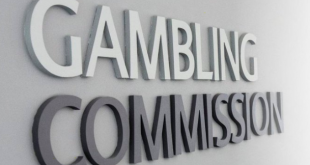French operators have been warned to improve their AML and anti-fraud capabilities by l’Autorité Nationale des Jeux (ANJ), the country’s unified gambling regulator.
The Authority (ANJ) has scrutinised the submitted action plans for “Combating Fraud, Money Laundering, and Financing of Terrorism” by licensed gambling operators and those possessing exclusive rights – FDJ and PMU.
Despite operators conforming to ANJ’s requirements and recommendations issued in 2022, the ANJ board has identified key areas that require urgent improvement.
For 2023, the ANJ has outlined three ‘priority areas’ for operators: enhancing alert systems to address risks, ensuring personnel compliance with Anti-Money Laundering (AML) and Countering the Financing of Terrorism (CFT) procedures, and aligning procedures with targeted financial sanctions.
Technical demands will see French operators expected to adjust their procedures to adhere to ‘asset freezing obligations’ and verify “politically exposed persons” before establishing business relationships, and gathering evidence regarding the origin of funds played.
At an operational level, businesses have been ordered to strengthen the ‘professional training of staff members’ on AML requirements and to improve internal controls with regards to monitoring fraudulent behaviours.
The ANJ’s evaluation process included an assessment of the implementation of AML/CFT obligations and the suitability of proposed measures for 2023. This method allowed the ANJ to evaluate each operator’s situation concerning the execution of the prior year’s plan and the proposed actions for 2023.
While it reported that most operators demonstrated a positive compliance trend, displaying progress in governance, risk understanding, and business relationship management, some operators still require further enhancement to effectively implement anti-fraud, anti-money laundering, and counter-terrorism financing measures.
Of significance, the ANJ rejected Pari-Mutuel Urbain (PMU)‘s action plan, citing that it carried “unimplemented prescriptions from the previous year and an insufficient 2023 plan.”
The regulator pointed out PMU’s lack of human resources, lack of specialised staff training, inadequate point-of-sale checks, and outdated risk analysis.
Additionally, PMU failed to process alerts related to stake splitting and had incomplete measures for large international bettors. The ANJ requires PMU to submit a revised action plan within a month after discussing with its services.
The ANJ’s review highlights the importance of compliance with regulations in the gambling industry by placing an emphasis on the need for operators to adapt to evolving risks and adopt adequate measures to combat fraud and money laundering underscoring the importance of the sector’s integrity.
ANJ concluded: “The review is a reminder that operators must prioritize compliance with regulations concerning the gambling industry. The review is particularly important in light of the ongoing global pandemic, which has increased the risk of fraud and money laundering.
“Operators should take note of the ANJ’s recommendations and improve their compliance measures accordingly to enhance the sector’s credibility and trustworthiness.”









